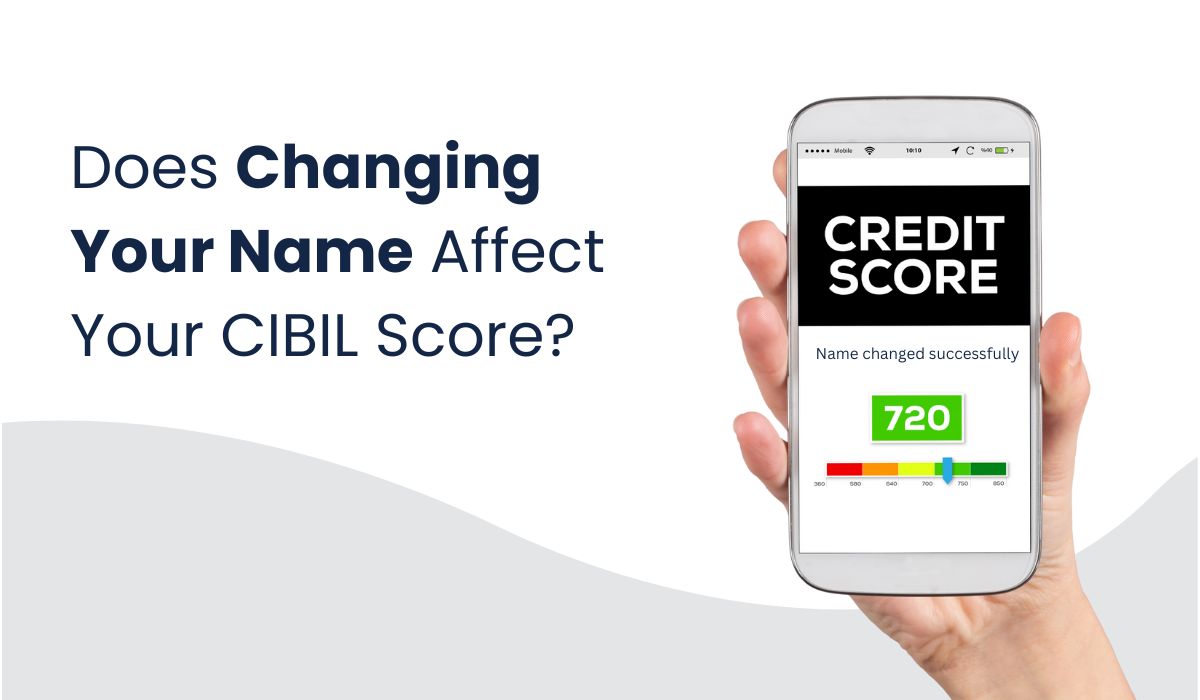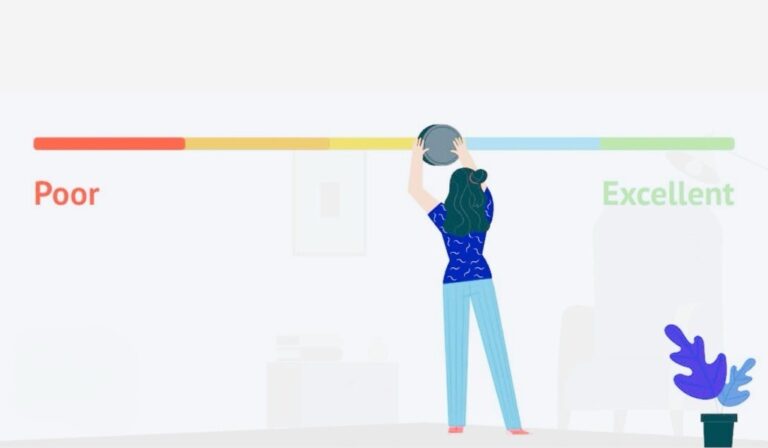Changing the spelling of your name requires updating your details across all relevant records to avoid future discrepancies or misunderstandings with lenders.
If you’ve recently altered the spelling of your name and are wondering how this might impact your credit history, this article offers valuable insights.
How does a name change impact your CIBIL score?
Changing your name, whether due to marriage, divorce, or even a spelling correction, won’t directly impact your CIBIL score, the Indian equivalent of a credit score. The factors that truly influence your CIBIL score are your financial habits, like your history of making payments on time, how much credit you utilise compared to your credit limit, any recent loan applications, and the length of your credit history.
These factors are all linked to your unique identification number, not your name. However, to avoid any confusion or delays, it’s still important to update your creditors and the credit bureaus with your new name and legal documents.
No Direct Impact on Credit Score
Changing your name won’t hurt your credit score! Whether it’s due to marriage, divorce, or just a pesky typo, your credit score remains unaffected. The real factors that determine your score are your track record of making payments on time, how much credit you are using compared to your limit, any recent loan applications, and the overall length of your credit history.
Also, read: How to increase CIBIL score?
Why Updating Your Name Matters?
Maintaining Accurate Records
In our financial world, accuracy is king. Having your name consistent across all accounts – bank statements, credit reports, loan documents – ensures a smooth flow of information. Mismatched names can lead to delays, and errors, and even hinder your ability to access your own credit.
Avoiding Identity Theft
Leaving your old name lingering out there can be an open door for identity theft. Criminals can use your old information to open fraudulent accounts, rack up debt, and damage your credit score. Updating your name with institutions like credit bureaus makes it harder for them to exploit your identity. By taking these steps, you safeguard your financial well-being and ensure a clean record under your new name.
How does altering the spelling of your name affect your Credit History?
A minor misspelling in your name likely won’t derail your credit history. Credit bureaus rely on Social Security numbers, birthdates, and addresses for identification, so a small error in your name might still link to your credit report. However, it’s not ideal. Misspelled names can cause delays or confusion when applying for loans.
To ensure a smooth transition and accurate reporting, contact your lenders and credit bureaus with your corrected name and legal documentation. This proactive approach keeps your credit information organised and avoids any bumps in the road.
Steps to Take After a Name Change
Inform Your Lenders
Don’t let your name change cause a credit headache! Contact your banks, credit unions, loan servicers, and mortgage companies as soon as possible. Provide a certified copy of your court order or legal name change document. This ensures they update your accounts with your new name. This is crucial to avoid any reporting issues and keep your credit history accurate.
Contact Credit Bureaus
Equifax, Experian, and TransUnion are the major credit bureaus that maintain your credit report. Let them know about your name change by contacting them directly. Submit a copy of your legal documentation for verification. This process ensures your credit report reflects your new name consistently and helps prevent errors that could negatively impact your credit score.
Regular Monitoring
Even after updating your lenders and credit bureaus, it’s wise to regularly monitor your credit reports. Look for any accounts or information still listed under your old name. This allows you to catch any discrepancies early and take action if needed. By being proactive, you can ensure a smooth transition to your new name across all your financial accounts.
Frequently Asked Questions
1. How long does it take for the name change to reflect in my CIBIL report?
It can take anywhere from a few weeks to a few months for your updated name to appear on your CIBIL report. This timeframe depends on how quickly your lenders update their records and report them to the credit bureaus.
2. What documents do I need to submit to CIBIL for a name change?
While CIBIL itself doesn’t require any documents for a name change, it’s important to submit proof to your lenders and the credit bureaus.
3. What happens if I don’t update my name after a change?
Not updating your name after a change can lead to a few potential issues, delays, reporting issues, and identity theft issues.
Also, check:
- CIBIL Score for Bike Loan
- CIBIL Score for Car Loan
- CIBIL Score for Personal Loan
- How to get a personal loan with a CIBIL defaulter status?
- CIBIL Customer Care Number
- What are all the mistakes that Can Lower your Credit Score?
- CIBIL Login and Registration Process
- What is an ECN number in the CIBIL Report?
- Does Changing Your Name Affect Your CIBIL Score?
- How to check and remove your name from CIBIL’s Defaulter List?





